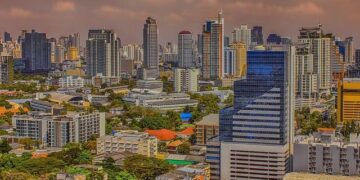Pharmaceutical Council of Nigeria Closes 67 Illegal Pharmacies in Lagos Amid Rising Regulatory Enforcement
PCN’s Decisive Intervention Against Unlawful Pharmacy Operations in Lagos
The Pharmaceutical Council of Nigeria (PCN) has recently intensified its regulatory oversight by shutting down 67 pharmacies across Lagos State found operating outside the bounds of legal authorization. This decisive action underscores the council’s commitment to upholding pharmaceutical standards and protecting public health from the dangers posed by unlicensed and substandard drug outlets.
During comprehensive inspections, numerous violations were uncovered, including:
- Lack of official registration: A significant number of these pharmacies were not registered with PCN, rendering their operations illegal.
- Employment of unqualified personnel: Several establishments staffed individuals without requisite professional credentials or licenses.
- Distribution of unauthorized medications: Some outlets sold drugs that had not received approval for sale within Nigeria, raising concerns about counterfeit or unsafe products.
The PCN has pledged to increase routine monitoring and enforce stricter compliance protocols to ensure all pharmaceutical providers meet established legal requirements. This crackdown is part of a broader strategy aimed at eliminating illicit practices while fostering consumer confidence in licensed pharmacies throughout Lagos and beyond.
The Broader Implications for Community Healthcare Access
The closure of these illegal pharmacies brings into sharp focus the delicate balance between regulatory enforcement and healthcare accessibility. While ensuring that only authorized facilities dispense medications is vital for patient safety—especially given that counterfeit drugs contribute to an estimated 10%–30% failure rate in treatments globally—the sudden reduction in pharmacy numbers may temporarily disrupt access to essential medicines for some communities.
Lagos residents who depended on these now-sealed outlets might face challenges such as longer travel distances or medication shortages. To mitigate such impacts, local health authorities could implement strategies including:
- Community education campaigns: Raising awareness about the risks associated with patronizing unregistered pharmacies and guiding consumers toward verified providers.
- Incentivizing licensed pharmacy establishment: Encouraging qualified operators to open branches in underserved neighborhoods through subsidies or streamlined licensing processes.
- Civic engagement initiatives: Partnering with community leaders to promote safe medication practices and build trust around legitimate pharmaceutical services.
This multifaceted approach ensures that while regulatory standards are upheld, equitable access to quality healthcare remains a priority within affected communities.
Sustaining Compliance: Best Practices & Preventative Strategies for Pharmacy Operators
The recent enforcement actions serve as a critical reminder for pharmacy owners across Nigeria about the necessity of strict adherence to PCN regulations. To avoid similar sanctions, operators should consider implementing comprehensive compliance frameworks focused on key areas such as licensing verification, operational transparency, and staff competency development. Essential steps include:
- Diligent license management: Regularly confirming validity periods on permits and promptly renewing documentation before expiration dates;
- Routine internal audits : Conducting systematic reviews covering inventory control , record-keeping , sales reporting ,and adherence checks ;
- Continuous staff training : Educating employees on current laws governing pharmaceutical practice , ethical dispensing procedures ,and customer safety protocols .
Engaging legal experts specializing in healthcare legislation can further assist pharmacies navigating complex regulatory landscapes effectively . Additionally , adopting technological solutions —such as digital inventory systems —can enhance accuracy while reducing human error . Establishing confidential channels enabling employees or customers alike to report suspicious activities anonymously also strengthens internal governance . These proactive measures collectively foster sustainable compliance aligned with national standards .
Maintaining open communication lines between pharmacy operators and regulatory bodies like PCN encourages collaborative problem-solving approaches which benefit both parties involved . Such partnerships facilitate timely updates regarding policy changes while promoting shared responsibility towards safeguarding public health nationwide .
Legal consultancy collaborations offer tailored guidance navigating evolving regulations efficiently , whereas technology-driven monitoring tools provide real-time insights into operational integrity.
Investments into digital infrastructure support accurate tracking mechanisms crucial for compliance assurance . Furthermore,
regular dialogue with regulators fosters mutual understanding essential for continuous improvement within Nigeria’s pharmaceutical sector .
A Path Forward: Strengthening Pharmaceutical Integrity Across Nigeria
The recent clampdown by the Pharmaceutical Council of Nigeria (PCN) against unauthorized pharmacy operations marks a pivotal step toward reinforcing industry accountability throughout Lagos State. By closing down dozens of non-compliant establishments, authorities have sent a clear message emphasizing patient safety above all else amid growing concerns over counterfeit medicines worldwide—estimated by WHO at nearly $200 billion annually lost due to fake pharmaceuticals affecting millions globally each year.
This initiative highlights how rigorous enforcement combined with educational outreach can elevate public trust while encouraging lawful business conduct among pharmacists nationwide. Moving forward, it remains imperative that stakeholders—including government agencies, healthcare professionals, community leaders—and consumers collaborate closely toward building an ecosystem where quality-assured medications are accessible without compromise anywhere across Nigeria’s diverse regions.
The PCN’s unwavering dedication signals forthcoming enhancements likely involving more frequent inspections alongside advanced technological integration designed specifically around transparency enhancement efforts within this critical sector.
Pharmacy owners must heed this call by embracing robust compliance cultures proactively rather than reactively responding after punitive measures arise.
Ultimately, safeguarding Nigerians’ health depends heavily upon collective vigilance ensuring every medicine dispensed meets stringent quality benchmarks set forth under Nigerian law today—and tomorrow alike!














